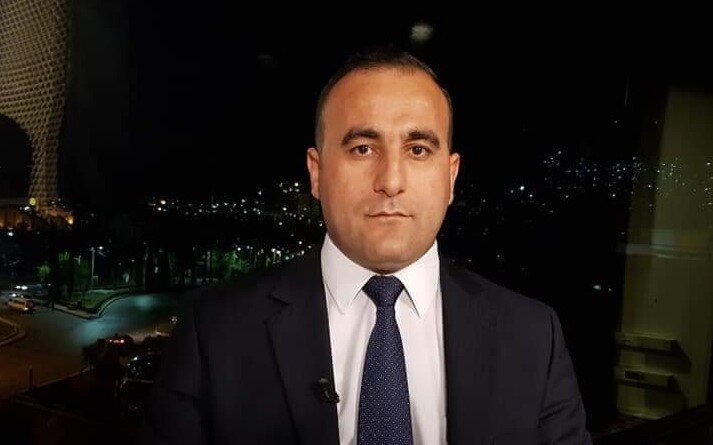Damascus can restore its active role to mediate between Tehran and Riyadh: Syrian politician

TEHRAN - A member of the National Reconciliation Committee in Syria stresses that the Syria-Saudi Arabia rapprochement is not at the expense of relations with Iran, and Damascus can restore its role to mediate between Tehran and some Arab capitals including Riyadh.
"The Syrian-Saudi rapprochement is a necessity, and it is a reasonable and realistic move. It is natural for Syria to restore its relations with its Arab surroundings, as the Arab countries' reluctance to support the opposition gave Syria strength and speed in getting rid of armed terrorist organizations," Omar Rahmoun tells the Tehran Times.
Amid news of a potential Saudi-Iran rapprochement, media reported of a Saudi intelligence delegation in Damascus have received considerable coverage. An exclusive report by Rai al-Youm about Saudi Arabian intelligence chief’s meeting with Syrian President Bashar Assad has raised questions over the timing of the move.
As the Biden administration in the U.S. seeks to recalibrate the unorthodox, Trump-era West Asian policies, the Saudis have been hedging their bets, uncertain over the future of Washington's interests in Riyadh. The latest move by the Saudis also comes after the UAE and Bahrain publicly embraced rapprochement with Syria in recent years.
Unlike some observers who say that a cozy relationship between Damascus and Riyadh may push Syria into the Saudi-led coalition's arms, Syrian officials are of the opinion that their country is looking forward to restore its traditional role to mediate between Tehran and other Arab capitals.
"The Syrian-Saudi rapprochement has not and will not be at the expense of the strategic relationship between Syria and Iran. The two issues are totally different, and on the contrary, the Syrian-Saudi rapprochement may be in the interest of Saudi Arabia and Iran if Syria restores its active role that it previously played in converging views between Iran and the Arab countries," Rahmoun argues.
Following is the text of the interview:
Q: What are the implications of the presidential elections in Syria at regional and international levels?
A: The recent Syrian elections carried several messages at both regional and international levels. The most important point in this election is Syria's victory, passing the stage of danger, and containing the enemy's plots that were intended to destroy the country.
The second message is that Syria is facing a new reality after the Syrian people renewed the pledge of allegiance to President Bashar al-Assad. All observers who are interested in Syrian issues must take this fact into consideration.
Q: How do you evaluate the recent elections in the light of Western criticism that the election was neither free nor fair?
A: There are two axes, a Western axis and an Eastern axis. The Western axis always questions the elections of any Eastern country, claiming that their elections are unfair and undemocratic.
Western criticism of Wednesday's presidential election has "zero value", as President al-Assad said because they are our enemies who only see what suits their interests.
Q: How has the decade-long war in Syria affected the Syrian political scene?
A: The recent Syrian presidential elections witnessed a remarkable development. While the elections were previously focused on one person, we saw three candidates, and the government added a candidate who represented the opposition.
So, we witnessed a great development on the Syrian internal political scene, at a time when the opposition outside Syria did not change their posturing, insisting on their stagnated position, which is the overthrow of the regime instead of active participation in the elections.
Q: What is your comment on the Saudi-Syrian rapprochement? Is this move at the expense of relations with Iran?
A: The Syrian-Saudi rapprochement is a necessity, and it is a reasonable and realistic move. It is natural for Syria to restore its relations with its Arab surroundings, as the Arab countries' reluctance to support the opposition gave Syria strength and speed in getting rid of armed terrorist organizations.
The Syrian-Saudi rapprochement has not and will not be at the expense of the strategic relationship between Syria and Iran. The two issues are totally different; and on the contrary, the Syrian-Saudi rapprochement may be in the interests of Saudi Arabia and Iran if Syria restores the active role that it previously played in converging views between Iran and the Arab countries.
Q: How do you view the U.S. policies towards Syria under the Biden presidency? Do you see any fundamental change?
A: There is no difference between Trump and Biden in America's policy when it comes to Syria. America has a policy of enmity with Syria and it does not change with the change of the president at the White House.
The main point is the victory of Syria, on which everything will be impacted by this victory now and later.
Just as Saudi Arabia and others changed their positions on Syria, there will come a day when America will change its position on Syria on the basis of reality and not on the basis of an American desire.
